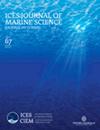Advancing artificial intelligence in fisheries requires novel cross-sector collaborations
IF 3.4
2区 农林科学
Q1 FISHERIES
引用次数: 0
Abstract
Artificial intelligence, or AI, has the potential to dramatically improve our understanding and management of the ocean. For fisheries, these benefits could include greater monitoring coverage at lower costs, improved estimates of catch and bycatch, identification of illegal fishing, and seafood traceability throughout the supply chain. However, fisheries AI innovation and adoption faces substantial barriers from the highly regulated nature of fisheries and the complex overlap of government policies, diverse user needs, and market pressures. We argue that needed advances in fisheries AI require novel collaborations to share data and methods, encourage new and diverse entrants to the field, and increase baseline technical literacy across the global fisheries community. Unlocking fisheries data to power AI, particularly image data, can only be achieved through partnerships across government managers, AI developers, fishers and vessel owners, and technology service providers, which, in turn, requires a common vocabulary for policy and technical concepts. With a greater shared understanding across the field, fisheries AI providers can deliver desired results, and users can have confidence that systems are performing as advertised, ultimately meeting monitoring demand and sustainability goals.推进渔业人工智能需要新的跨部门合作
人工智能有可能极大地提高我们对海洋的理解和管理。对渔业而言,这些好处可能包括以更低的成本扩大监测覆盖面、改进对渔获量和副渔获物的估计、识别非法捕捞以及在整个供应链中对海产品的可追溯性。然而,渔业人工智能的创新和应用面临着巨大的障碍,因为渔业具有高度管制的性质,而且政府政策、不同用户需求和市场压力复杂重叠。我们认为,要想在渔业人工智能领域取得进展,就必须开展新型合作,共享数据和方法,鼓励新的和多样化的参与者进入该领域,并提高全球渔业界的基本技术素养。只有通过政府管理者、人工智能开发者、渔民和船主以及技术服务提供者之间的合作,才能解锁渔业数据,为人工智能(尤其是图像数据)提供动力。有了这一领域更广泛的共同理解,渔业人工智能提供商就能提供预期结果,用户也能对系统按预期运行有信心,最终满足监测需求和可持续发展目标。
本文章由计算机程序翻译,如有差异,请以英文原文为准。
求助全文
约1分钟内获得全文
求助全文
来源期刊

ICES Journal of Marine Science
农林科学-海洋学
CiteScore
6.60
自引率
12.10%
发文量
207
审稿时长
6-16 weeks
期刊介绍:
The ICES Journal of Marine Science publishes original articles, opinion essays (“Food for Thought”), visions for the future (“Quo Vadimus”), and critical reviews that contribute to our scientific understanding of marine systems and the impact of human activities on them. The Journal also serves as a foundation for scientific advice across the broad spectrum of management and conservation issues related to the marine environment. Oceanography (e.g. productivity-determining processes), marine habitats, living resources, and related topics constitute the key elements of papers considered for publication. This includes economic, social, and public administration studies to the extent that they are directly related to management of the seas and are of general interest to marine scientists. Integrated studies that bridge gaps between traditional disciplines are particularly welcome.
 求助内容:
求助内容: 应助结果提醒方式:
应助结果提醒方式:


